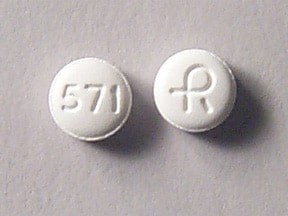
indapamide – oral, Lozol
Medication Uses: This medication is used to treat high blood pressure. Indapamide is also used to reduce extra salt and fluid in the body (edema) caused by a certain heart problem (congestive heart failure). Lowering blood pressure helps prevent strokes, heart attacks, and kidney problems. Decreasing salt and fluid in the body helps decrease swelling and breathing problems from congestive heart failure and increases ability to exercise. Indapamide is a "water pill" (diuretic) that increases urine production. Getting rid of extra water and salt may help relax blood vessels so that blood can flow more easily. These effects help lower blood pressure and decrease the work the heart must do to pump blood.
HOW TO USE: Take this medication by mouth with or without food, usually once daily in the morning or as directed by your doctor. It is best to avoid taking this medication within 4 hours of bedtime to avoid getting up during the night to urinate. Consult your doctor or pharmacist if you have questions about your dosing schedule. The dosage is based on your medical condition and treatment response. Use this medication regularly to get the most benefit from it. To help you remember, take it at the same time each day. It is important to continue taking this medication even if you feel well. Most people with high blood pressure do not feel sick. It may take several weeks before the full benefit of this drug takes effect. Tell your doctor if your condition does not improve or if it worsens (your blood pressure readings remain high or increase).
SIDE EFFECTS: Dizziness or headache may occur. If any of these effects persist or worsen, tell your doctor or pharmacist promptly. Remember that your doctor has prescribed this medication because he or she has judged that the benefit to you is greater than the risk of side effects. Many people using this medication do not have serious side effects. Indapamide may cause too much body water and salts to be lost (dehydration). Prolonged diarrhea, vomiting, or excessive sweating can increase this risk. To prevent dehydration, drink plenty of fluids unless otherwise directed by your doctor. Tell your doctor promptly if you have any symptoms of dehydration, including: fast/irregular heartbeat, unusual dry mouth/thirst, muscle cramps/pain, unusual decreased urination, weakness. This medication may infrequently make your blood sugar level rise, which can cause or worsen diabetes. Tell your doctor immediately if you develop symptoms of high blood sugar, such as unusual increased thirst and urination. If you already have diabetes, be sure to check your blood sugars regularly. Your doctor may need to adjust your diabetes medication, exercise program, or diet. A very serious allergic reaction to this drug is rare. However, seek immediate medical attention if you notice symptoms of a serious allergic reaction, including: rash, itching/swelling (especially of the face/tongue/throat), severe dizziness, trouble breathing. This is not a complete list of possible side effects. If you notice other effects not listed above, contact your doctor or pharmacist.
PRECAUTIONS: Before taking indapamide, tell your doctor or pharmacist if you are allergic to it; or if you have any other allergies. This product may contain inactive ingredients, which can cause allergic reactions or other problems. Talk to your pharmacist for more details. Before using this medication, tell your doctor or pharmacist your medical history, especially of: diabetes, gout, kidney problems, liver disease, a certain nerve surgery (sympathectomy). This drug may make you dizzy. Do not drive, use machinery, or do any activity that requires alertness until you are sure you can perform such activities safely. Limit alcoholic beverages. This medication may decrease your level of potassium in the blood. Before using potassium supplements or salt substitutes containing potassium, consult your doctor or pharmacist. This medication may make you more sensitive to the sun. Avoid prolonged sun exposure, tanning booths, and sunlamps. Use sunscreen and wear protective clothing when outdoors. Before having surgery, tell your doctor or dentist about all the products you use (including prescription drugs, nonprescription drugs, and herbal products). During pregnancy, this medication should be used only when clearly needed. "Water pills" (diuretics) are not usually recommended to treat high blood pressure caused by pregnancy. Discuss the risks and benefits with your doctor. It is unknown if this medication passes into breast milk or may harm a nursing infant. Discuss the risks and benefits with your doctor before breastfeeding.
DRUG INTERACTIONS: The effects of some drugs can change if you take other drugs or herbal products at the same time. This can increase your risk for serious side effects or may cause your medications not to work correctly. These drug interactions are possible, but do not always occur. Your doctor or pharmacist can often prevent or manage interactions by changing how you use your medications or by close monitoring. Be sure to tell your doctor and pharmacist about all the products you use (including prescription drugs, nonprescription drugs, and herbal products) before starting treatment with this product. While using this product, do not start, stop, or change the dosage of any other medicines you are using without your doctor’s approval. Some products that may interact with this drug include: digoxin, lithium. Check the labels on all your medicines (such as cough-and-cold products, diet aids, or NSAIDs such as ibuprofen, naproxen) because they may contain ingredients that could increase your blood pressure/heart rate or worsen your heart failure. Ask your pharmacist for more details. This medication may interfere with certain laboratory tests (including parathyroid function), possibly causing false test results. Make sure laboratory personnel and all your doctors know you use this drug. This document does not contain all possible drug interactions. Keep a list of all the products you use. Share this list with your doctor and pharmacist to lessen your risk for serious medication problems.
QUESTION
OVERDOSE: If overdose is suspected, contact a poison control center or emergency room immediately. US residents can call their local poison control center at 1-800-222-1222. Canada residents can call a provincial poison control center. NOTES: Do not share this medication with others. Laboratory and/or medical tests (such as levels of potassium in the blood, kidney function) should be performed periodically to monitor your progress or check for side effects. Consult your doctor for more details. Lifestyle changes such as stress reduction programs, exercise, and dietary changes may increase the effectiveness of this medicine. Talk to your doctor or pharmacist about lifestyle changes that might benefit you. Have your blood pressure checked regularly while taking this medication. Learn how to monitor your own blood pressure at home, and share the results with your doctor. MISSED DOSE: If you miss a dose, take it as soon as you remember. If it is near the time of the next dose, skip the missed dose and resume your usual dosing schedule. Do not double the dose to catch up. STORAGE: Store at room temperature between 59-86 degrees F (15-30 degrees C) away from light and moisture. Do not store in the bathroom. Keep all medicines away from children and pets. Do not flush medications down the toilet or pour them into a drain unless instructed to do so. Properly discard this product when it is expired or no longer needed. Consult your pharmacist or local waste disposal company for more details about how to safely discard your product. Information last revised March 2013. Copyright(c) 2013 First Databank, Inc.
Report Problems to the Food and Drug Administration
You are encouraged to report negative side effects of prescription drugs to the FDA. Visit the FDA MedWatch website or call 1-800-FDA-1088.
Selected from data included with permission and copyrighted by First Databank, Inc. This copyrighted material has been downloaded from a licensed data provider and is not for distribution, except as may be authorized by the applicable terms of use.
CONDITIONS OF USE: The information in this database is intended to supplement, not substitute for, the expertise and judgment of healthcare professionals. The information is not intended to cover all possible uses, directions, precautions, drug interactions or adverse effects, nor should it be construed to indicate that use of particular drug is safe, appropriate or effective for you or anyone else. A healthcare professional should be consulted before taking any drug, changing any diet or commencing or discontinuing any course of treatment.


